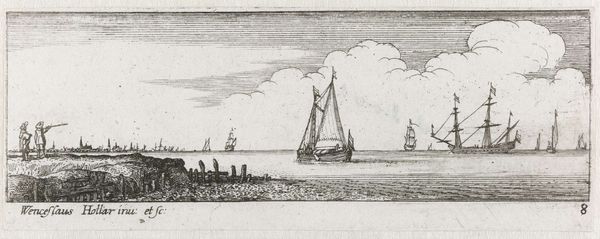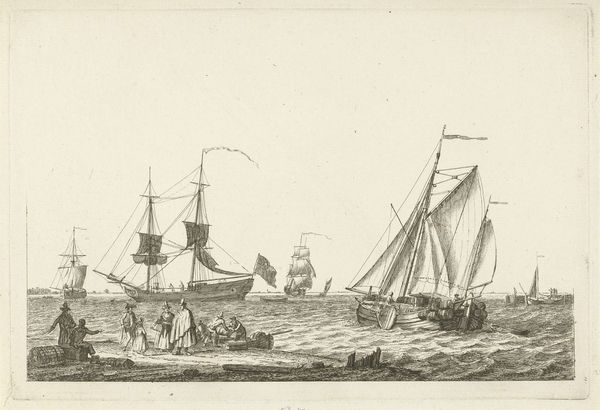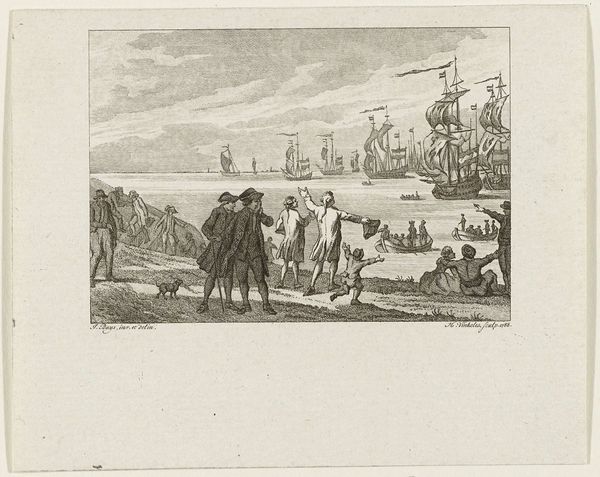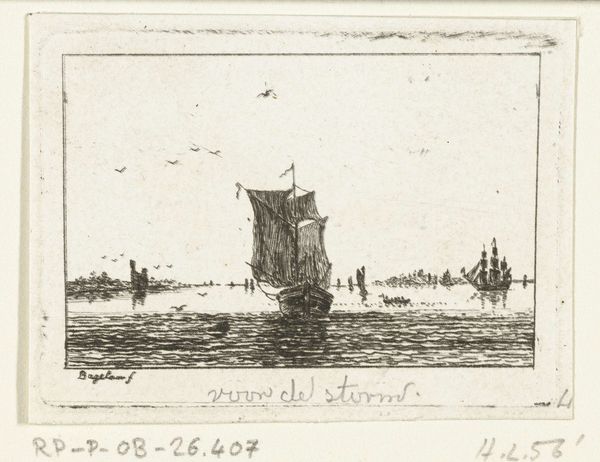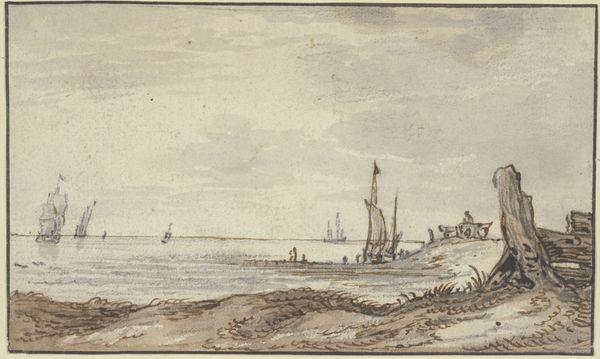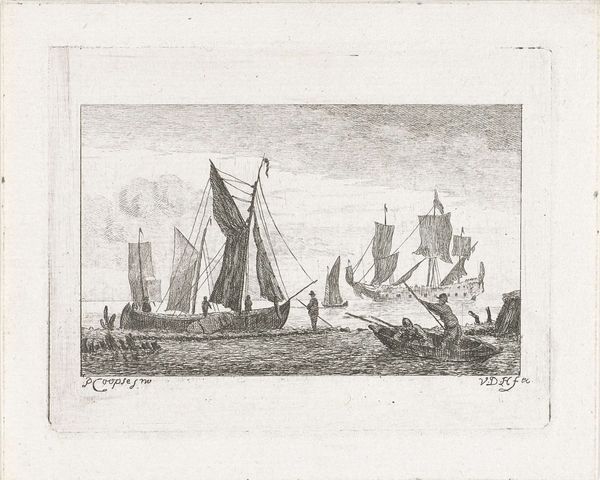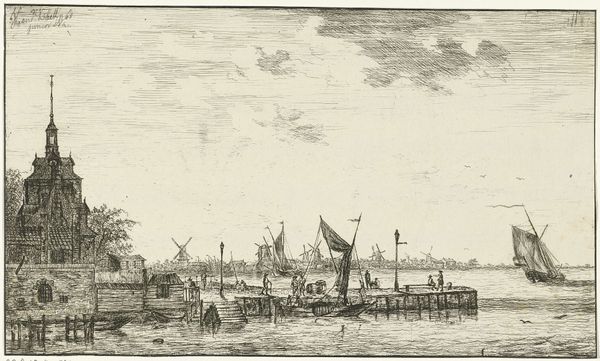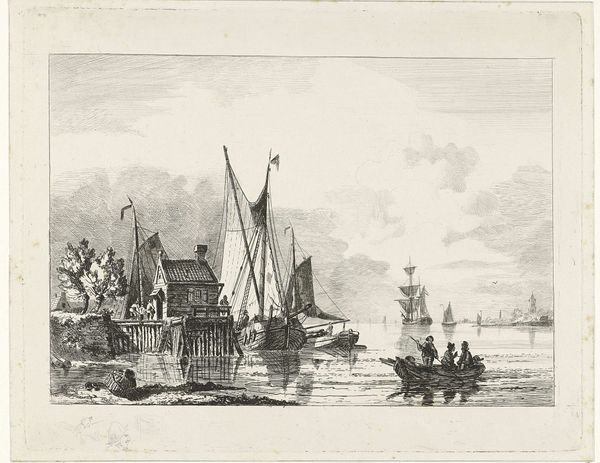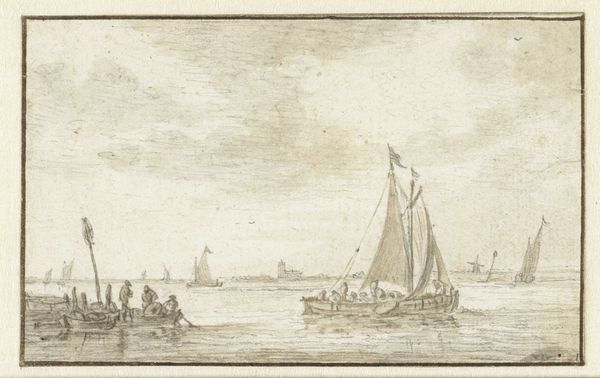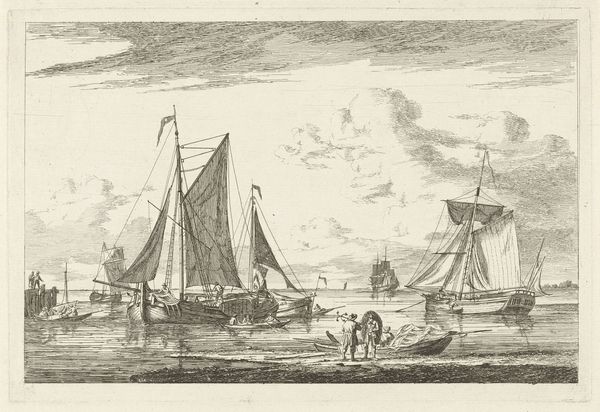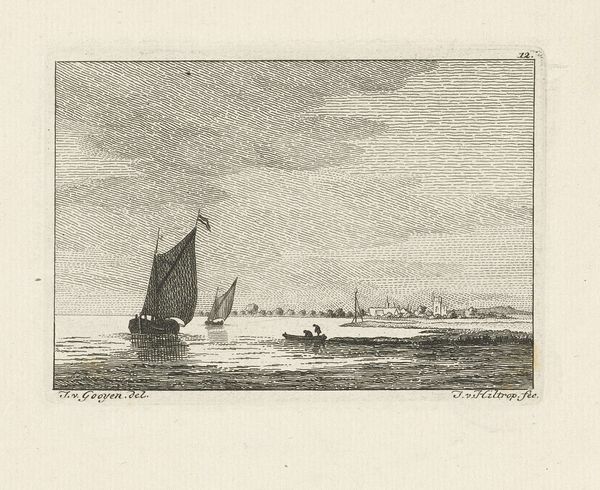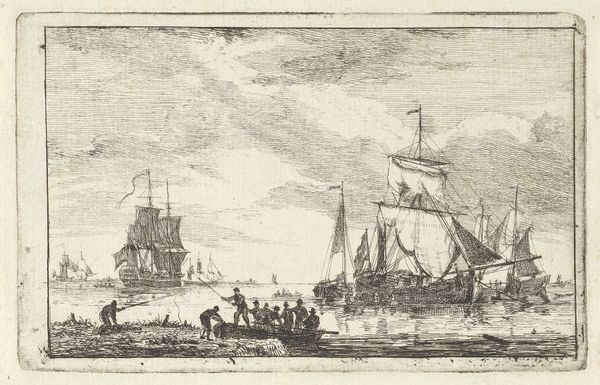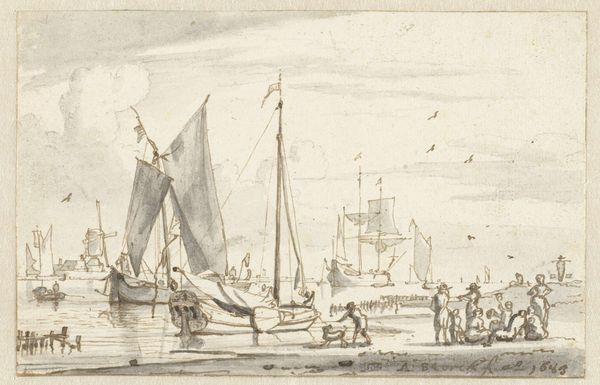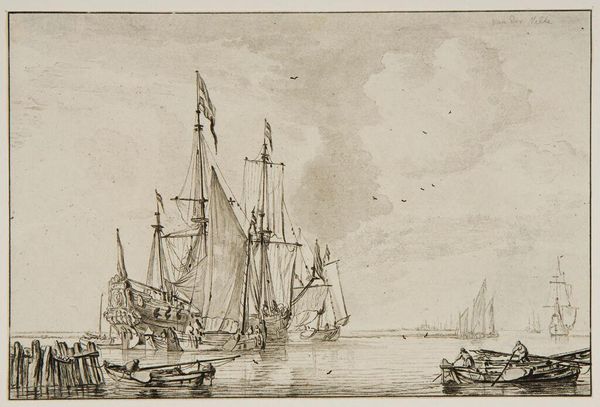
print, etching
#
dutch-golden-age
# print
#
etching
#
landscape
#
romanticism
#
genre-painting
Dimensions: height 52 mm, width 78 mm
Copyright: Rijks Museum: Open Domain
Editor: Here we have Ernst Willem Jan Bagelaar's "View of the Beach with Two Boats and a Horseman," an etching from between 1798 and 1837. The scene feels very everyday, almost like a snapshot in time, but the detail is incredible. What symbols or meanings do you see at play here? Curator: The scene evokes a very particular kind of yearning, doesn't it? The sea is such a loaded symbol - adventure, the unknown, danger... and commerce. Do you notice how the boats aren't idealized? They're working vessels. Even the figures seem preoccupied, engaged in labor or simply passing through. Editor: That makes sense. I was so focused on the overall image, I didn’t consider the nuances of their actions and poses. Is there a story being hinted at with the horseman and the boats? Curator: Perhaps not a specific story, but a broader narrative about human existence and its connection to nature. The horseman, perhaps a merchant or traveler, symbolizes transit and the passage of time. Boats are connection, expansion. These visual shorthands are clues for reading Dutch culture, for whom trade was literally survival. Think about how these symbols continue to appear in art throughout history. Can you make some connections? Editor: So it’s less about one literal meaning and more about recognizing the repeated use of images in art to gain meaning. It really contextualizes the cultural significance of a single scene. Curator: Precisely! Recognizing these recurring symbols offers us a deeper understanding, even an intuitive connection to the artist and their time. It’s about more than just the aesthetic, it is about tapping into the cultural memory that’s been coded into these images. Editor: It's amazing how a seemingly simple image can hold so much. Thanks for opening my eyes to the symbolic weight within it.
Comments
No comments
Be the first to comment and join the conversation on the ultimate creative platform.
